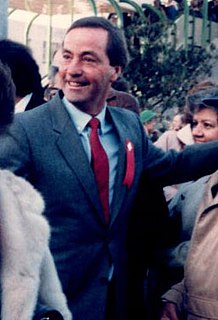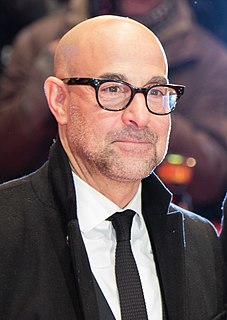A Quote by Stieg Larsson
I've read crime fiction all my life. A thing that's bothered me about crime fiction is that it's generally about one or two people, but there's not much about society. I want to get away from that particular pattern: a lead, a supporting role and backdrop characters.
Related Quotes
I think it's important to humanize history; fiction can help us remember. A lot of books I've read in the past have been so much more important than textbooks - there is an emotional connection with one particular person. I'm very much of a research-is-important type of fiction writer, even for contemporary fiction. I wrote about blogs in America and I've never blogged. But I read many, many blogs - usually about feminist things, or about race, or about hair.
The best crime stories are always about the crime and its consequences - you know, 'Crime And Punishment' is the classic. Where you have the crime, and its consequences are the story, but considering the crime and the consequences makes you think about the society in which the crime takes place, if you see what I mean.
I grew up reading crime fiction mysteries, true crime - a lot of true crime - and it is traditionally a male dominated field from the outside, but from the inside what we know, those of us who read it, is that women buy the most crime fiction, they are by far the biggest readers of true crime, and there's a voracious appetite among women for these stories, and I know I feel it - since I was quite small I wanted to go to those dark places.
Once I got interested in organized crime, and, specifically, Jewish organized crime, I got very interested in it. I have learned that, like my narrator Hannah, I'm a crime writer in my own peculiar way. Crime with a capital "C" is the subject that I'm stuck with - even Sway is about "crime" in a certain way. The nice thing about crime is that it enables you to deal with some big questioO
It had also been my belief since I started writing fiction that science fiction is never really about the future. When science fiction is old, you can only read it as being pretty much about the moment in which it was written. But it seemed to me that the toolkit that science fiction had given me when I started working had become the toolkit of a kind of literary naturalism that could be applied to an inherently incredible present.
I often tell people who want to write historical fiction: don't read all that much about the period you're writing about; read things from the period that you're writing about. There's a tendency to stoke up on a lot of biography and a lot of history, and not to actually get back to the original sources.
The first act of insight is throw away the labels. In fiction, while we do not necessarily write about ourselves, we write out of ourselves, using ourselves; what we learn from, what we are sensitive to, what we feel strongly about--these become our characters and go to make our plots. Characters in fiction are conceived from within, and they have, accordingly, their own interior life; they are individuals every time.
[Hollywood] studios are handing out money to make independent films now, but they all want the same thing. They want the style and the deadpan delivery of RESERVOIR DOGS or FARGO and so they imitate those movies. They want PULP FICTION, but they get it all wrong! They get the detachment, but that's it. And then it's all about style, and in the end what do you learn about the characters? Nothing. You learn you wasted two hours.





































